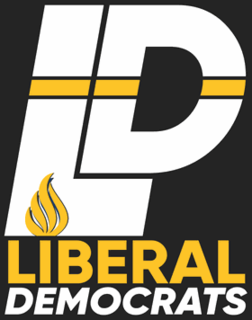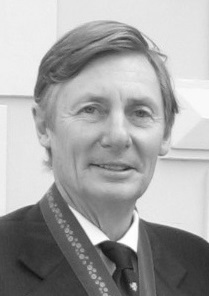Related Research Articles
Elections in Australia take place periodically to elect the legislature of the Commonwealth of Australia, as well as for each Australian state and territory and for local government councils. Elections in all jurisdictions follow similar principles, although there are minor variations between them. The elections for the Australian Parliament are held under the federal electoral system, which is uniform throughout the country, and the elections for state and territory Parliaments are held under the electoral system of each state and territory.

The Liberal Democratic Party, shortened as LDP, Liberal Democrats, or Lib Dems, is an Australian political party founded in Canberra in 2001. The party espouses smaller government and supports policies that are based on classical liberal, libertarian principles, such as lower taxes, opposing restrictions on civil liberties, decentralisation, utilising nuclear energy, and the relaxation of smoking laws.

State elections were held in South Australia on 25 November 1989. All 47 seats in the South Australian House of Assembly were up for election. The incumbent Australian Labor Party led by Premier of South Australia John Bannon defeated the Liberal Party of Australia led by Leader of the Opposition John Olsen. Labor won 22 out of 47 seats, and secured a majority of 24 with the support of two Independent Labor members.

State elections were held in South Australia on 12 July 1975. All 47 seats in the South Australian House of Assembly were up for election. The incumbent Australian Labor Party led by Premier of South Australia Don Dunstan won a third term in government, defeating the Liberal Party of Australia led by Leader of the Opposition Bruce Eastick.
The Progress Party, initially known as the Workers Party, was a minor political party in Australia in the mid-to-late 1970s. It was formed on 26 January 1975, as a free-market right-libertarian and anti-socialist party, by businessmen John Singleton and Sinclair Hill, in reaction to the economic policies of Labor prime minister Gough Whitlam. It operated and ran candidates in Western Australia, the Northern Territory, South Australia, Queensland and New South Wales, but it did not have a central federal structure. Its Western Australian affiliate, which advocated secession from the rest of Australia, did particularly well in the area surrounding Geraldton in the state's Mid West. However, the party failed to win seats at any level of government and had gone out of existence by 1981.

The 2008 Western Australian state election was held on Saturday 6 September 2008 to elect 59 members to the Legislative Assembly and 36 members to the Legislative Council. The incumbent centre-left Labor Party government, in power since the 2001 election and led since 25 January 2006 by Premier Alan Carpenter, was defeated by the centre-right Liberal Party opposition, led by Opposition Leader Colin Barnett since 6 August 2008.
William Hawkins Sewell was an Australian politician who was a Labor Party member of the Legislative Assembly of Western Australia from 1950 to 1974, representing the seat of Geraldton.
Reginald John Tubby was an Australian politician who was a Liberal Party member of the Legislative Assembly of Western Australia from 1975 to 1989, representing the seat of Greenough.
The 1991 Floreat state by-election was a by-election for the seat of Floreat in the Legislative Assembly of Western Australia held on 20 July 1991. It was triggered by the resignation of Andrew Mensaros on 16 May 1991, due to ill health. He died before the by-election was held. The election was won by an independent candidate, Liz Constable, who finished with 58.94 percent of the two-candidate-preferred vote. Constable became the first woman to win election to the Parliament of Western Australia as an independent, and only the third woman overall to win a by-election.
The 1990 Cottesloe state by-election was a by-election for the seat of Cottesloe in the Legislative Assembly of Western Australia held on 11 August 1990. It was triggered by the resignation of Bill Hassell on 28 June 1990. The Liberal Party retained Cottesloe at the election with an increased majority, with Colin Barnett securing 70.26 percent of the two-party-preferred vote. The Labor Party did not field a candidate.
A by-election for the seat of Roebourne in the Legislative Assembly of Western Australia was held on 6 February 1932. It was triggered by the death of Frederick Teesdale on 14 December 1931.
A by-election for the seat of Subiaco in the Legislative Assembly of Western Australia was held on 10 November 1917. It was triggered by the death of the sitting member, Bartholomew Stubbs of the Labor Party, on 26 September 1917. The election was won by Samuel Brown, a member of the Subiaco Municipal Council who was standing for the Nationalist Party. Brown was one of six candidates endorsed by the Nationalists, and won the seat despite only polling 15.02 percent of the first-preference vote.
The 1991 Geraldton state by-election was a by-election for the seat of Geraldton in the Legislative Assembly of Western Australia held on 20 July 1991. It was triggered by the resignation of Jeff Carr on 28 February 1991, due to his expulsion from cabinet. The election was won by the Liberal candidate, Bob Bloffwitch, who won 51.4 percent of the two-candidate-preferred (2CP) vote. The National Party also made the final 2CP count, despite having not stood a candidate in Geraldton since the 1974 state election, whereas Labor slumped to just 16.6 percent on first preferences, a swing of 31 points from the 1989 state election.
A by-election for the seat of Boulder in the Legislative Assembly of Western Australia was held on 4 December 1948. It was triggered by the death of Philip Collier, a former premier, on 18 October 1948. The Labor Party retained the seat at the election, with Charlie Oliver winning 78.9 percent of the first-preference vote.
A by-election for the seat of Guildford-Midland in the Legislative Assembly of Western Australia was held on 13 March 1948. It was triggered by the death of the sitting member, William Johnson of the Labor Party, on 26 January 1948. The Labor Party retained the seat, with John Brady recording 53.7 percent of the two-party-preferred vote. The election was notable for the performance of the Communist Party candidate, Alexander Jolly, who polled 19.3 percent on first preferences.
A by-election for the seat of Balcatta in the Legislative Assembly of Western Australia was held on 28 July 1973. It was triggered by the resignation of Herb Graham, the deputy premier in the Labor government of John Tonkin, on 30 May 1973.
The 1994 Glendalough state by-election was a by-election for the seat of Glendalough in the Legislative Assembly of Western Australia held on 19 March 1994. It was triggered by the resignation of Carmen Lawrence on 14 February 1994, in order to contest the House of Representatives at the 1994 Fremantle by-election. The Labor Party retained Glendalough at the by-election, with their candidate, Michelle Roberts, recording 52.7 percent of the two-party-preferred vote.
A by-election for the seat of Ascot in the Legislative Assembly of Western Australia was held on 13 November 1971. It was triggered by the death of Merv Toms, the serving Labor member and Speaker of the Legislative Assembly, on 8 October 1971.
A by-election for the seat of Dale in the Legislative Assembly of Western Australia was held on 7 May 1988. It was triggered by the resignation of Cyril Rushton on 25 February 1988. The seat was retained by the Liberal Party, with their candidate, Fred Tubby, winning 59.1 percent of the two-candidate-preferred (2CP) vote. The Labor Party did not stand at the election, despite having lost the seat by less than 400 votes at the 1986 state election. A former Labor candidate, Michael Marsh, won 40.9 percent of the 2CP vote standing as an independent.
A by-election for the seat of York in the Legislative Assembly of Western Australia was held on 21 November 1942. It was triggered by the resignation of Charles Latham on 7 October 1942, to take up an appointment to the Senate. The Country Party retained the seat, with Charles Perkins winning by just 40 votes on the two-candidate-preferred count.
References
- 1 2 Penrose, Sandra (April 1976). "Australian Political Chronicle: July-December 1975". Australian Journal of Politics and History. 22 (1): 112. ISSN 0004-9522.
- ↑ David Brand, Biographical Register of Members of the Parliament of Western Australia. Retrieved 12 February 2017.
- ↑ Black, David; Prescott, Valerie (1997). Election statistics, Legislative Assembly of Western Australia, 1890-1996. Perth, Western Australia: Parliamentary History Project and Western Australian Electoral Commission. p. 133. ISBN 0-7309-8409-5.
- ↑ Reginald John Tubby, Biographical Register of Members of the Parliament of Western Australia. Retrieved 24 February 2017.
- ↑ Greenough, WA Votes 2005, ABC News. Retrieved 24 February 2017.